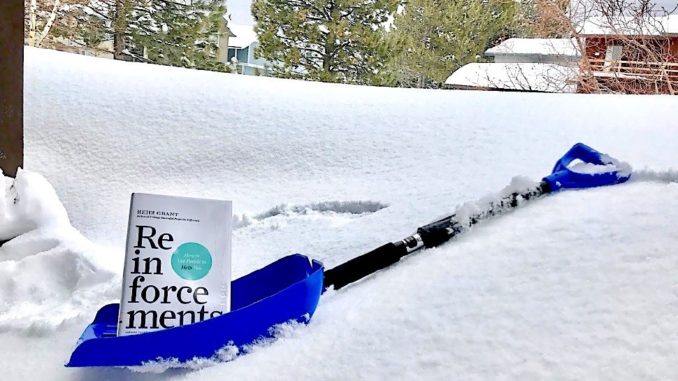
How do you ask?
Learn the skill that gets people to help you.
Asking is instinctive from infancy. The babies cry when they need something. As they grow, children become notoriously pesky askers. They don’t stop asking for what they want until they get it. Even when parents say “No!” they keep asking “Why?!?” Their persistence breaks down your will. Kulit!
For some reason, when we become adults, we stop asking for what we want.
Asking is an essential skill in life—whether we ask a parent for money, a friend for a favor, a mate for commitment, or a boss for a raise.
Many jobs require asking others to do something. Businesses and marketers constantly ask consumers to buy their products. Non-profits seek donations. Artists and creatives need support. Authors want you to buy their book. Social media publishers want you to share their posts. Activists want you to act. Some just need your attention.
But a lot of people have a hard time asking, says Heidi Grant, who holds a doctorate in social psychology from Columbia.
“[T[he truth is, asking for help can be a bit tricky. If it wasn’t you wouldn’t be reading this book….[A]lthough most people do have an innate desire to feel helpful, they really hate feeling compelled to help.”
Dr. Grant breaks down the psychology that goes behind why we hate asking for help, and how to effectively ask someone to do something for us. She explains why we feel bad when we ask for help, why we assume they will say No, and why we make it awkward even when they say Yes (Reinforcements: How to Get People to Help You, 2018)
This is a great update to the classic, “Ask for the Moon and Get It” by Percy Ross (1989). He says to always ask since you have nothing to lose and everything to gain—if they say No, you are just back where you started, no biggie. But, if they say Yes, then you are better off than before.
Despite the payoffs, many are still afraid to ask.
So how do we ask someone for help without guilting, tricking, or compelling them?
Help must be given freely. Otherwise the giver will resent you and will not help you in the future.
If we understand when people are helpful and what motivates them to help, then we can repeatedly elicit the enthusiastic Yes we seek, says Dr. Grant.
“We help because we want to be good people—to live up to our goals and values, and admittedly, to be admired.”
The secret is to intrinsically motivate the helper. Dr. Grant tells us how in four steps. She identifies obstacles that hinder us from successfully asking for help, or getting future help.
Sometimes, we’re so uncomfortable receiving help that we say weird things to allay our discomfort. In a great chapter called Don’t Make It Weird, Dr. Grant lists the ways we continue to sabotage ourselves after we’ve obtained help.
This book enlightens as it educates. As we learn how to give positive reinforcements for others’ help, we also learn more about ourselves—how our beliefs, perceptions, and self-esteem affect how we give and receive help.
This is an essential guide for anyone who wants to learn how to ask effectively. It’s well-written, solidly researched, and easily digestible in short chapters with summaries. The table of contents and index are clear and helpful.
As important as learning how to ask, is knowing how to say thank you, says Dr. Grant. It’s part of the reinforcement cycle. When we forget to say thanks, the helper is disappointed and our relationship with them weakens.
“Gratitude is a glue that binds you and your benefactor together, allowing you to hit the same well over and over again when you need support, know ing that it won’t run dry.”
There’s nothing to fear about asking for help once we realize that we are all driven to do good. It makes us happy to know that we made a positive difference in someone’s life. It makes us feel good to know that we are good and that we have done something good, says Dr. Grant.
“People are helpful much more often than not. People don’t think less of you for needing help. And helping, with the right reinforcers in place, feels wonderful.”
——————
If reading is important to you, please follow me on Instagram @IvyDigest and together we can promote authors’ books and increase literacy.
#heidigranthalvorson #nonfictionbook #nonfictionreading #nonfictionread #ivydigest #nonfictionbookreview #reinforcements #howtoaskforhelp #askingforhelp
@harvard_business_review @harvardhbs@stephani13 @harvard @columbia
